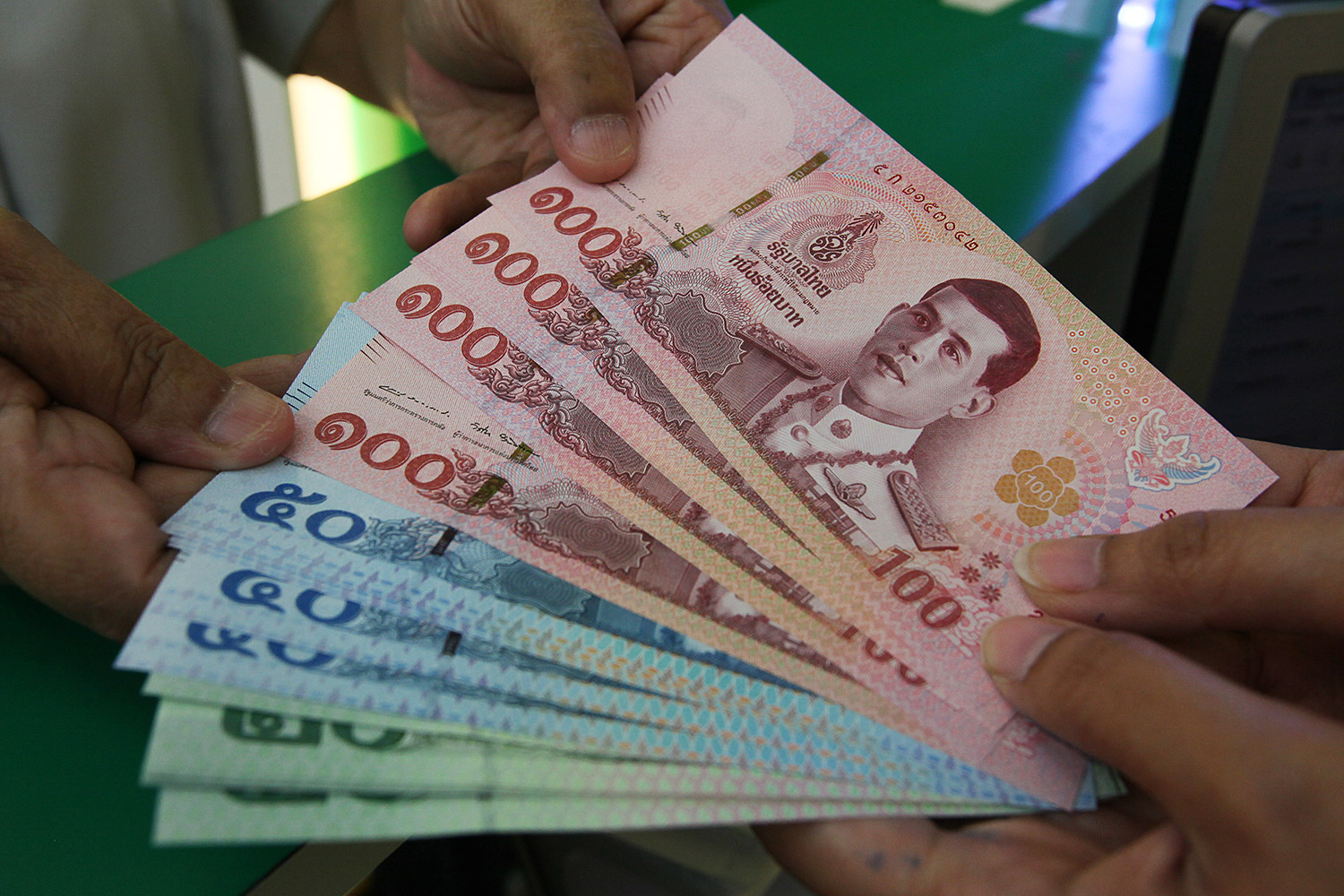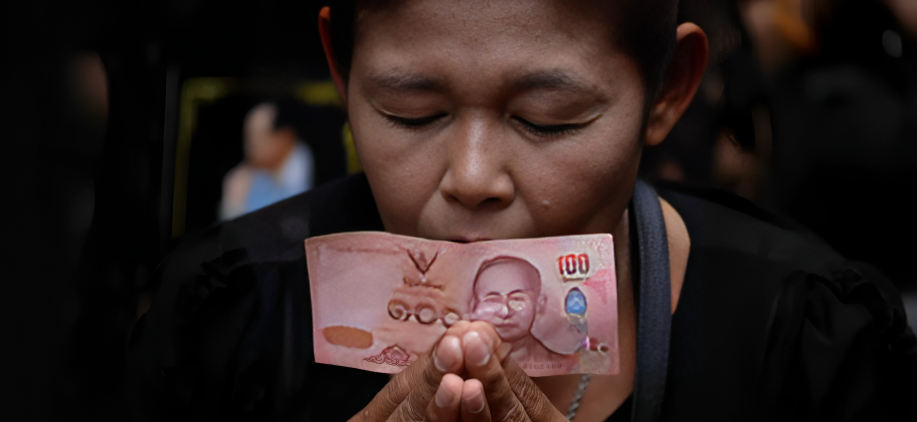By Josh Butterworth. Josh is Impact Teaching’s Thailand Program Coordinator, and he lives in Thailand.
Welcome to a new series where I delve into Thai culture as a Westerner who has lived in the Kingdom for over a year and a half now. But before I get into it, let me please preface my words by saying I am in no way a representative of UK or Western culture as a whole, nor have I experienced Thai culture in its entirety. I am simply a man has who spent most of his life in one place, who has now started a new one in another. I have met many people in my twenty-eight years on this planet, and have had both meaningful and insignificant relationships in both the UK and Thailand, it is those experiences I will be drawing from to give you some insight into how two cultures halfway across the world differ from one another.
The topic I am going to discuss in this article is a sensitive one wherever you are from in the world. It is also something that I do not fully understand in my own country, let alone in Thailand. I can only describe what I have witnessed and experienced, and give my observations on it. But I believe I have a good insight at least, on the subject of this article which is money and the culture of borrowing in Thailand.
To give some context I should first explain my experience and relationship with money, more specifically in relation to borrowing it. I have been very fortunate in that I have never had to take out any loans or borrow money from anyone other than my parents. I am from a middle-class family where both of my parents were teachers, we were never rich by any means but they do now possess the financial security to help me if I really need it. I know that I am very lucky. As are the majority of my friends and peers back home, they are mostly in the same position as me, no debt other than to the bank of mum and dad.
Now is the time where I should offer a broad generalisation about people in the UK and their relationship with money, but I’m afraid I cannot. As for Thailand, I do have a bit more to say, and the fact that I have been shocked by many things indicates there are big clashes with my core beliefs. I’m just not sure if that’s because of my upbringing or the fact I’m British, I’d appreciate your help working out which one it is. And of course, I am going to generalise massively, so please don’t judge that I am declaring a whole country of diverse and  different people as all the same. I can only draw from the conversations I have had with Thai people, and I am yet speak to them all.
different people as all the same. I can only draw from the conversations I have had with Thai people, and I am yet speak to them all.
Everywhere you go in the world you will find people spending money on expensive and arguably pointless things. And the motive is always the same, ‘hey, look at me, I’m rich’. Maybe I’ve been hoodwinked by a complex ruse but it was always my assumption that those people who buy expensive things are actually rich. It turns out that in Thailand, that isn’t always the case.
Let me use gold as a prime example of this, it’s very popular in Thailand and people value it highly as a sign of wealth. You can’t miss the striking red gold shops in every shopping mall and supermarket across the country. Every time I would see someone with a thick gold necklace glistening in the hot sun, I just assumed that that person was very rich. That was until I discovered that people take out massive loans to buy gold, cars, watches and more. I’m sure this happens everywhere, but my Thai friend told me it is very common with young and old people alike, and often leads to lifelong debt. I believe this is linked to the culture of hierarchy in Thailand that still exists after a more prominent past, people possess a desire to maintain a façade of being wealthy in order to gain more power and climb the social ladder. From my experience, this is a far more significant part of culture in Thailand than it is in the UK.
I personally cannot find a valid reason to borrow money in order to simply look rich, people in the street may assume you have a lot of money but you know deep down that you do not. By all means, if you’ve got the money then spend it as you please. But if you can’t afford it and don’t really need it, don’t buy it, and certainly don’t go into debt for it. The confidence that comes with having enough money in the bank and not being in debt is far greater than driving around in a Merc with £10k worth of gold around your neck, neither of which you own. This is just my opinion and I’m sure there are many Thais who agree with me, as well as many Brits who do not. Borrowing money to elevate perceived social status may not be unique to Thailand, but I certainly notice a clamour to impress with expensive things here more than in the UK.
Sticking to the subject of loans but moving to a far smaller scale, I have been shocked by the culture of borrowing money amongst friends and even acquaintances in Thailand. Just as many people in the UK do, a lot of Thais live paycheck to paycheck with no safety net or rainy-day savings to fall back on. What this seems to lead to in Thailand is a confusing web of borrowing money between friends and colleagues. One person will be waiting for money from three or four people and at the same time be borrowing from three or four others. It’s a complex situation that I don’t fully understand, but do find quite uncomfortable. And this scenario does not seem to be exclusive for  those people who are struggling with money. I have rich Thais and other Southeast Asians, such as Malaysians, who also do this.
those people who are struggling with money. I have rich Thais and other Southeast Asians, such as Malaysians, who also do this.
The reason for it is not one that I can provide a good explanation for, but I wonder if it has something to do with the collective society that is still somewhat present even to this day, as it is in many other Asian countries. We are an individualistic society in the UK, and whether we like it or not, we put ourselves first. I’m not ashamed to say that if I didn’t have enough money then I would not loan any to my friend. But borrowing amongst my friendship group has never really happened, and there have been many times when some have needed money whilst others have had it. Is that just us or is it a British thing? I don’t know the answer to that.
I was baffled to learn that some of my Thai friends have even lent money to colleagues they actively dislike, I really don’t understand this and probably never will. But I think it’s roots lie in the idea of looking after one another and being part of a bigger group, both generally as a country and also in smaller groups such as a workforce or friendship group. There also seems to be more trust amongst Thais, this is reflected in society as a whole when you see keys left in motorcycles on the street and food deliveries in the entrances of apartment blocks. If you trust that someone will pay you back then lending them money isn’t such a big issue. I think that in the UK there is a lack of trust as well as a deep-rooted desire to protect oneself, in Thailand there is more trust and empathy for others.
Another factor of this borrowing phenomenon may be a lack of financial support from parents. In many cases, young Thais actually give their parents part of their salary each month, it certainly isn’t that way for most in the UK. Without parents to fall back on, I guess friends and colleagues are a good option. But it’s more complex than that, for sure. Borrowing money because you’ve lent yours to other people is not something I can align with, don’t lend it in the first place, the money you have earned is yours and nobody else’s. This may sound harsh, but blame my individualistic upbringing in the UK, not me.
I hope my insights were interesting and felt you have learnt something about Thai culture, or even British culture for that matter. I can honestly say that’s it’s such a privilege to live in a country as wonderful as Thailand, to really get to know its people and explore how they live their lives. It makes me reflect on my own views and beliefs, and forces me to become a more rounded person. If you have a desire to do the same, not just in Thailand but also China, Vietnam, Hungary or Poland, teaching abroad is a fantastic option. You have the chance to really reach the heart of a culture within a school. It’s a wonderful thing to do, and I would know, I taught in China and Thailand.
Impact the world, and let the world impact you.
Get in touch here if you have any questions. Or get start your teach abroad adventure, here, today.




